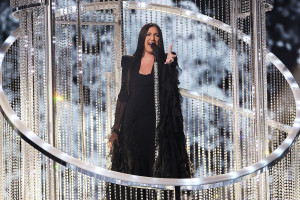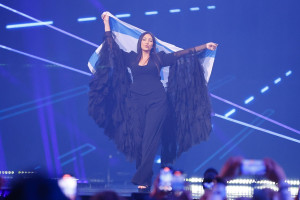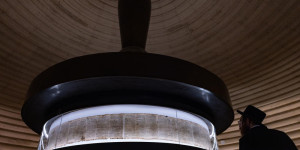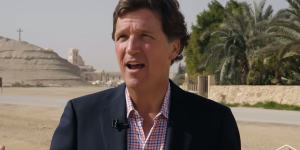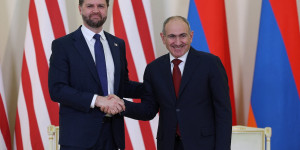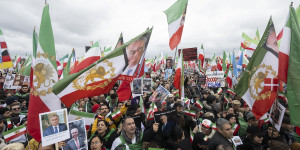Eurovision fallout: Public cheers, politicians protest Israel’s unexpected second place win
'There’s a girl who survived the Nova massacre… and you’re questioning why the public loved this song and loved her?'

According to a Kan News report, accusations of political bias are shaking the foundations of the Eurovision Song Contest following Israel's surprising success in the 2025 competition.
Just days after Israeli contestant Yuval Raphael claimed second place with overwhelming audience support, several European nations are demanding a formal investigation into the voting process.
The controversy erupted after Spain awarded Israel 12 points, a move that drew immediate backlash. Broadcasters in both Spain and Belgium have accused Eurovision organizers of encouraging vote manipulation in favor of Israel. An inquiry has already been launched to examine the legitimacy of the results.
Martin Green, head of the Eurovision competition, rejected the allegations outright. "Every vote is checked meticulously," he asserted. "Our voting system is among the most secure in the world."
Despite these assurances, the debate quickly escalated into the political realm. Spanish Prime Minister Pedro Sánchez wasted no time in voicing his disapproval of Israel’s inclusion in the contest. "We saw this past weekend that Russia did not participate in Eurovision. And likewise, Israel should not be participating," he said. "We must not agree to double standards, not even in the realm of culture."
Others in Europe have echoed this sentiment, though not necessarily over vote-rigging. Former European Broadcasting Union figure Ignasi Guardans suggested the real force behind Israel's success was political mobilization. “It was a political activation,” he said, “calling on people to vote – initiated by embassies, pro-Israel communities, and the far right.”
Frustration among underperforming countries added fuel to the fire. Belgium failed to reach the finals for the second consecutive year, and Spain landed in 24th place, prompting some to suggest that scapegoating Israel might be easier than confronting their own shortcomings.
Yet, not all international voices joined the chorus of criticism. According to reports from Turkey, Germany's public broadcaster ARD threatened to withdraw from the contest if Israel was disqualified – a gesture seen by many as decisive in keeping Israel in the competition.
One of the most vocal defenders of Israel’s place in the contest was famed American music producer Scooter Braun. During an interview, Braun responded bluntly to the critics:
“Have any of you ever broken a star? Had any of you ever made a huge superstar globally? So what makes you think that you know what the public wants?”
He pointed to the deeply emotional background of Yuval Raphael – a survivor of the Nova massacre – and questioned the legitimacy of doubting her popularity:
“There’s a girl who survived the Nova massacre… and you’re questioning why the public loved this song and loved her?”
Even as Eurovision officials insist the voting system was transparent and tech-audited, calls for greater scrutiny are growing louder in Belgium, Iceland, Finland, Slovenia, and the Netherlands. The central question being asked: Can Eurovision truly remain a cultural event free of political influence?
In the end, Yuval Raphael’s 297 audience points propelled her to a powerful second-place finish – and more than that, to cultural icon status. But as the dust settles, the fallout from this year’s contest is far from over.
Eurovision 2025 may be behind us, but the storm leading into next year’s competition in Austria has already begun.

The All Israel News Staff is a team of journalists in Israel.
You might also like to read this:


